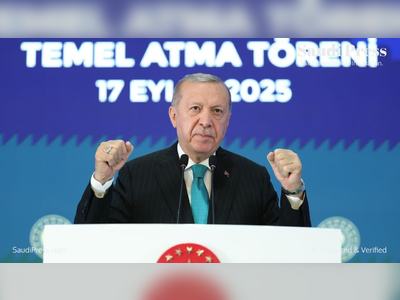Top AI Researchers Are Heading Back to China as U.S. Struggles to Keep Pace
Growing migration of leading scientists reflects China’s ability to move faster than U.S. tech firms in AI strategy, funding and flexibility
A notable migration of leading AI researchers from the United States back to China is underway, reflecting a broader perception that China offers greater speed, strategic investment, and intellectual freedom for those wanting to pursue ambitious AI visions.
Figures such as Song-Chun Zhu have become emblematic of this shift.
Zhu, trained in the U.S. and formerly leading major labs at UCLA, moved in 2020 to head the Beijing Institute for General Artificial Intelligence, citing both philosophical disagreement with mainstream U.S. neural-network orthodoxy and frustration at increasing funding, regulatory and political barriers in America.
Other high-profile examples reinforce the trend.
Fu Tianfan left a tenure-track position in New York to take up research opportunities at Nanjing University, drawn by China’s appetite to back scientific risk and its rapidly building infrastructure.
Another scientist, Liu Jun, who held a professorship at Harvard, recently returned to China to take up a chair at Tsinghua University, showcasing that even well-established academics are opting for China’s growing scientific ecosystem.
Several forces are converging to drive this reverse brain drain.
China is financing AI research at scale, offering state-sponsored institutions high autonomy, large “moonshot” projects, and generosity in resources.
By contrast, many U.S. tech firms and universities are seen as managing AI work more conservatively—focused on incremental improvements, neural-network scaling, and strict regulatory or funding restrictions.
At the same time, Chinese researchers have reported feeling increasing friction in the U.S. over visa uncertainty, surveillance fears, funding restrictions, and political tensions linked to national security.
The philosophical debate at play is also critical.
Zhu and others argue that the prevailing U.S. AI architecture—large datasets and compute-intensive models—suffers from diminishing returns, and that real progress toward artificial general intelligence requires reasoning, physical and social intuition, minimal data environments, and causal understanding.
China appears more willing to back such alternative paradigms.
If the trend continues, the United States may face a sharper innovation gap in AI.
China’s capacity to fund, build infrastructure, permit large-scale coordination, and tolerate long-horizon research—sometimes with less regulatory friction—creates competitive advantages.
U.S. policy makers and tech firms face pressure to reform grant systems, adjust immigration and visa policy, and reduce the constraints that discourage these researchers from staying.
The race for AI supremacy may increasingly rest not only on who has more computing power, but who can attract and keep the minds shaping the next generation of intelligence systems.
Figures such as Song-Chun Zhu have become emblematic of this shift.
Zhu, trained in the U.S. and formerly leading major labs at UCLA, moved in 2020 to head the Beijing Institute for General Artificial Intelligence, citing both philosophical disagreement with mainstream U.S. neural-network orthodoxy and frustration at increasing funding, regulatory and political barriers in America.
Other high-profile examples reinforce the trend.
Fu Tianfan left a tenure-track position in New York to take up research opportunities at Nanjing University, drawn by China’s appetite to back scientific risk and its rapidly building infrastructure.
Another scientist, Liu Jun, who held a professorship at Harvard, recently returned to China to take up a chair at Tsinghua University, showcasing that even well-established academics are opting for China’s growing scientific ecosystem.
Several forces are converging to drive this reverse brain drain.
China is financing AI research at scale, offering state-sponsored institutions high autonomy, large “moonshot” projects, and generosity in resources.
By contrast, many U.S. tech firms and universities are seen as managing AI work more conservatively—focused on incremental improvements, neural-network scaling, and strict regulatory or funding restrictions.
At the same time, Chinese researchers have reported feeling increasing friction in the U.S. over visa uncertainty, surveillance fears, funding restrictions, and political tensions linked to national security.
The philosophical debate at play is also critical.
Zhu and others argue that the prevailing U.S. AI architecture—large datasets and compute-intensive models—suffers from diminishing returns, and that real progress toward artificial general intelligence requires reasoning, physical and social intuition, minimal data environments, and causal understanding.
China appears more willing to back such alternative paradigms.
If the trend continues, the United States may face a sharper innovation gap in AI.
China’s capacity to fund, build infrastructure, permit large-scale coordination, and tolerate long-horizon research—sometimes with less regulatory friction—creates competitive advantages.
U.S. policy makers and tech firms face pressure to reform grant systems, adjust immigration and visa policy, and reduce the constraints that discourage these researchers from staying.
The race for AI supremacy may increasingly rest not only on who has more computing power, but who can attract and keep the minds shaping the next generation of intelligence systems.










